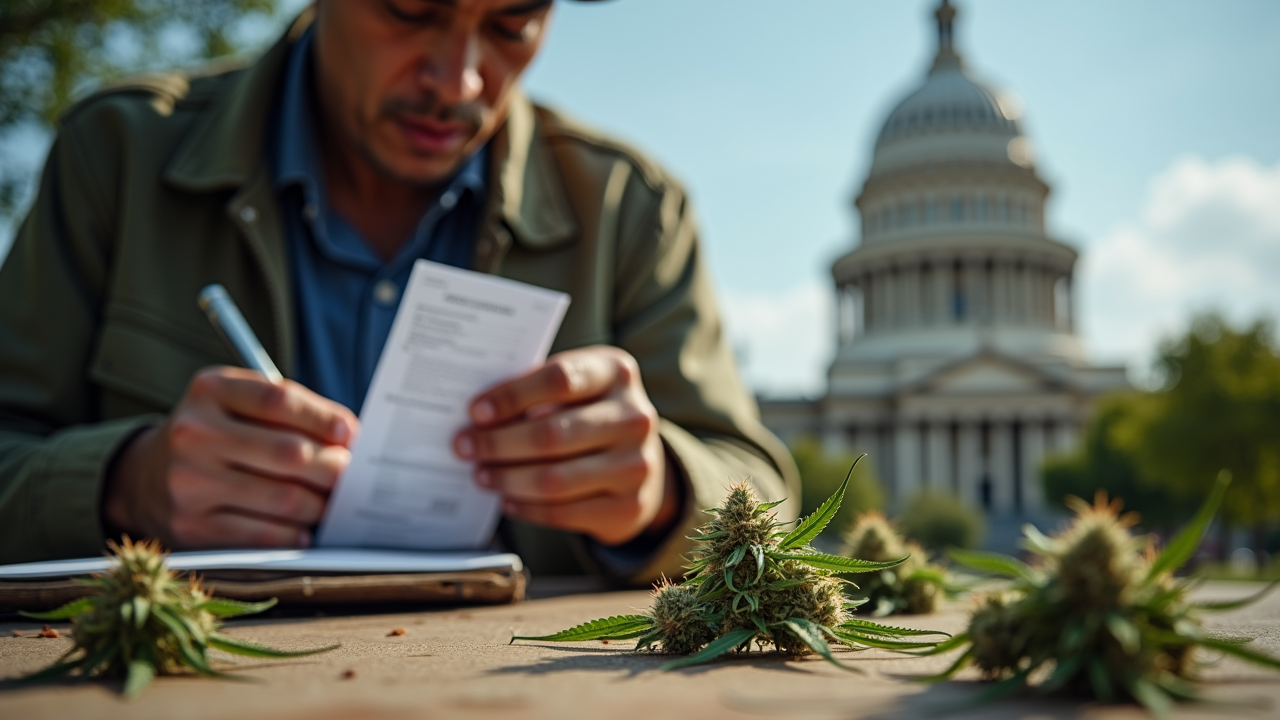
As 17 states advance cannabis reform legislation in early 2025, policymakers are navigating complex regulatory challenges while addressing historical inequities in drug enforcement. This analysis examines 62 active bills that reveal three distinct policy approaches: commercial market development, medical program expansion, and criminal justice reforms.
Expanding Access for Medical Patients
Recent legislation demonstrates increased focus on improving medical cannabis accessibility. Hawaii's HB602 eliminates registration requirements for out-of-state patients while prohibiting employment discrimination against cardholders. Oklahoma's SB697 introduces new inventory tracking requirements for dispensaries, aiming to standardize medical product quality across the state.
Veterans emerge as a key beneficiary group, with Arizona's HB2245 creating fee exemptions for former military personnel seeking medical cannabis treatment. However, Minnesota's SF313 reveals ongoing tensions between state programs and federal law by addressing firearm rights for medical cannabis patients.
Regional Regulatory Divergence
Policy approaches vary significantly by region:
- Northeast: New York's S01631 implements seed-to-sale tracking for adult-use cannabis, while Connecticut's HB05429 expands cultivation rights for palliative care patients
- Plains States: North Dakota's HB1321 modifies medical marijuana limitations, contrasting with South Dakota's HB1055 streamlining certification requirements
- Pacific Region: Washington's HB1346 focuses on removing industry barriers while maintaining strict testing protocols through HB1347
Criminal Justice Reforms
Several bills address historical enforcement disparities affecting minority communities. Virginia's HB2555 establishes automatic sentence modification hearings for pre-2021 marijuana convictions, particularly impacting African American and Latinx populations. Mississippi's HB654 reduces possession penalties, with analysis showing potential 42% reduction in drug-related incarcerations for young adults.
Implementation Challenges
Three key obstacles emerge from current legislation:
- Regulatory Coordination: Oklahoma's SB1092 requires odor control plans for cultivation facilities, highlighting environmental oversight complexities
- Federal Conflict: Minnesota's SF209 attempts to reconcile state-legal cannabis operations with federal tax codes
- Market Saturation Controls: New York's S01769 establishes 500-foot dispensary spacing rules to prevent market oversaturation
Employment and Discrimination
Workplace policies remain contentious, with Hawaii's HB325 prohibiting cannabis-based employment discrimination except for safety-sensitive positions. This contrasts with Connecticut's HB05736, which restores law enforcement's ability to use cannabis odor as probable cause for vehicle searches – a provision civil rights groups argue could perpetuate biased enforcement practices.
Future Outlook
Three trends suggest continued evolution:
- Veteran-Focused Reforms: 23% of analyzed bills contain veteran-specific provisions
- Home Cultivation Rights: Washington's HB1341 expands patient grow rights, a model other states may adopt
- Social Equity Licensing: New Jersey's S4074 proposes modified application processes to increase minority operator participation
As states refine their cannabis frameworks, ongoing challenges include reconciling medical/recreational systems, protecting patient rights, and ensuring equitable implementation. The coming year will likely see increased focus on interstate commerce policies and federal-state regulatory alignment as more jurisdictions legalize cannabis use.
Related Bills
Marijuana; reduce penalties for possession of.
Medical marijuana; fee; exemption; veterans
Relating To The Medical Use Of Cannabis.
An Act Concerning Caregivers, Qualifying Patients And The Palliative Use Of Cannabis.
Appropriation; medical marijuana; veterans; fees
Medical marijuana; promulgating certain Advisory Council to establish certain task force; requiring certain final report. Effective date.
Removing cannabis industry barriers.
Modify medical cannabis certification requirements.
Relating To The Medical Use Of Cannabis.
Medical marijuana license; modifying certain distance; updating statutory language. Effective date.
Related Articles
You might also be interested in these articles
